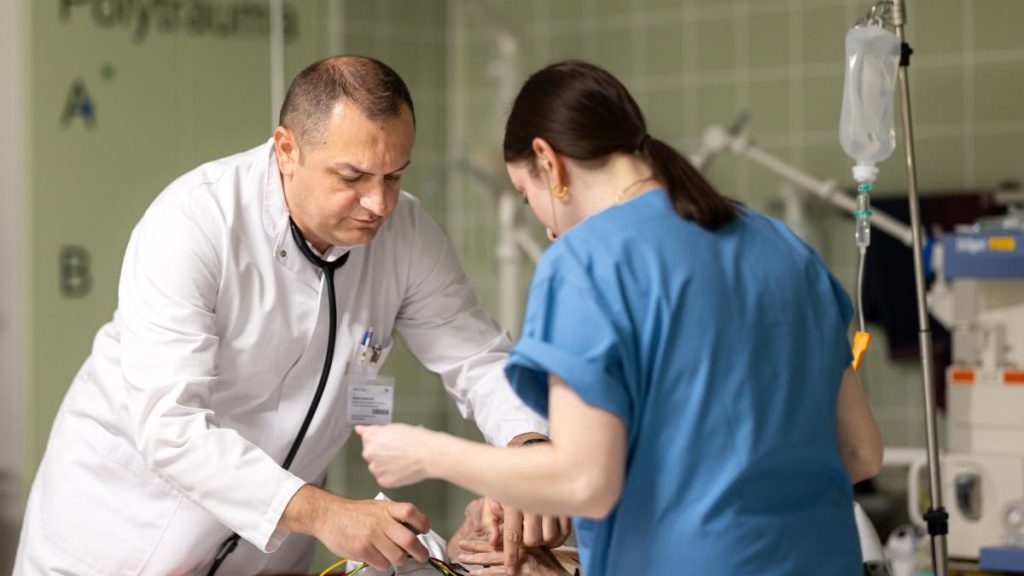A quarter of hospital doctors in Thuringia come from abroad, with 64,000 foreign doctors currently working in Germany’s healthcare system. According to experts, these foreign doctors are essential to maintaining the current standard of healthcare in the country. The majority of these doctors work in hospitals, particularly in smaller facilities and outside major urban centers. Without the migration of medical professionals, healthcare services in eastern Germany would see a significant reduction in local care. In Thuringia and Brandenburg, a quarter of hospital doctors are from abroad, while in Mecklenburg-Western Pomerania, it’s one-fifth.
The significance of foreign doctors in Germany’s healthcare system was highlighted by 200 medical organizations and associations, pointing out that the country cannot afford to overlook their contributions. Germany currently has around 421,000 doctors working in various healthcare settings, including hospitals and practices. Despite the essential role foreign doctors play, there is a shortage of medical professionals both in Germany and their home countries. The trend of urbanization has led many medical graduates to prefer working in cities rather than rural areas, creating a challenge for smaller hospitals in remote regions.
In Sondershausen, Thuringia, the KMG Clinic serves the predominantly rural Kyffhäuserkreis with various medical departments, including internal medicine, general and trauma surgery, gynecology/obstetrics, geriatrics, and emergency care. Nearly half of the clinic’s doctors have foreign nationality, reflecting the reliance on overseas professionals to meet patient needs. The declining population and aging demographic in Sondershausen have made it difficult to attract and retain local medical talent, leading the clinic to recruit doctors from abroad who seek opportunities for further specialization and career advancement.
The shift in workforce preferences, where newer generations of doctors prioritize work-life balance and family time, has contributed to the growing demand for medical professionals despite an increase in doctor numbers. Foreign doctors find Germany an attractive work destination, thanks to the excellent training opportunities and practical experience offered by German hospitals. The rigorous process of obtaining recognition for their medical qualifications in Germany involves language proficiency exams and knowledge assessments. However, the investment in this process has paid off for doctors like Goran Jordanoski, who found better career prospects and professional advancement in Germany compared to his home country, North Macedonia.
Many foreign doctors are drawn to Germany for its high-quality medical training and career opportunities, despite facing challenging accreditation processes. The contribution of foreign doctors is crucial in ensuring the continued functioning of Germany’s healthcare system, particularly in rural areas and smaller hospitals where local talent may be scarce. As healthcare needs continue to evolve, the presence of foreign doctors remains integral to addressing gaps in medical services and providing quality care to patients across the country.


